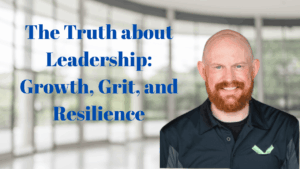
Blog
Notes:
“It’s a job of high highs and low lows.”
This is how Trevor Spires, an experienced Sales Engineer and a two-time guest on the podcast, describes our profession.
If you are a veteran Sales Engineer who has their own fair share of the lows or if you are new to the profession and know nothing of what to expect, this episode was made for you.
Trevor Spires is a solutions architect at Common Room, an online community software company based in Seattle. Outside work, he educates people about technical skills and know-how and the ins and outs of sales engineering through his popular YouTube channel. I’ve previously interviewed him in the podcast about AWS and working in a startup.
But even with all these and over five years of experience as a Sales Engineer, Trevor has had days when he wanted to quit.
We talk about what these days look like and how we get through them alive in this raw, real, and vulnerable episode.
Key Takeaways:
- Who Trevor Spires is
- Why Trevor loves sales engineering
- How Trevor manages proof of concepts and makes sure they don’t go to die
- Why and how to keep the momentum going during a product evaluation
- How to conduct effective product evaluations
- Trevor’s lowest moments as an SE
- How to use “short-term memory” to get past bad days easier
- A recent demo that Trevor bombed and we dig into for lessons
- Why there are no guarantees in the results of our demos
- How to balance moving on from a bad demo and learning from it
- How a team of SEs could support each other during a demo
- Why SEs should practice what to do when things go bad
- Why SEs should not take ownership of things not in their control
- How to deal with product managers and the product team as an SE or salesperson
- How to deal with the low lows of sales engineering
Quotes:
When customers agree on a call that they want to evaluate your product, that means that you did something right. — Trevor Spires
You can’t deliver an ROI in every single eval. You can only do that in some evals. — Trevor Spires
If I need to generate [a] budget that doesn’t already exist, I need an ROI to be a part of the eval. But if I’m trying to attach to [the] existing budget, I need strategic alignment to be part of the eval. — Trevor Spires
It’s so hard to watch a stand-up comedian bomb. And so like bombing a demo, to me feels like a similar energy. — Trevor Spires
I beat myself up a little bit when a demo doesn’t go well, even if I did my best. It’s hard for me to move past it. — Trevor Spires
As an SE, I feel like it’s my responsibility to really know what my product is good at. I should know the things that we do best and the things that we do worst. — Trevor Spires
I was operating in a risky situation where I didn’t really know what I was going to show at the beginning of the call, and I was trying to figure it out in real-time—not ideal. But…there are still situations where you will even have the opportunity to know what you’re walking into and prepare your demo and make it perfect. And sometimes that actually still bombs too. — Trevor Spires
You can do everything right and still be wrong. Or at least think that you’re right [at] the moment. — Ramzi Marjaba
Here’s one thing I tell my account managers, if you see people getting bored, stop me and say…hey, we want to check in with you. — Ramzi Marjaba
The thing about sales engineering and sales, in general, is that you’re not generally in control of your product. The engineering team might decide to do something here, that could be beneficial to 90% of the customers, but not to your biggest customer, for example. And now they just messed up your whole life with that specific customer. — Ramzi Marjaba
Links from the show:
- Connect with Trevor Spires on LinkedIn
- Subscribe to Trevor Spires’ YouTube channel
- Listen to Episode #231
- Listen to Episode #257
If you enjoyed this podcast, please support the show by dropping a review or rating on iTunes – https://podcasts.apple.com/us/podcast/we-sales-engineers-resource-for-sales-engineers-by/id1378292171



